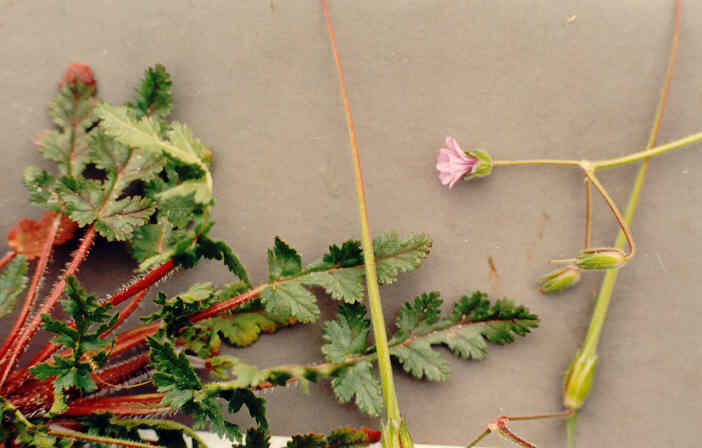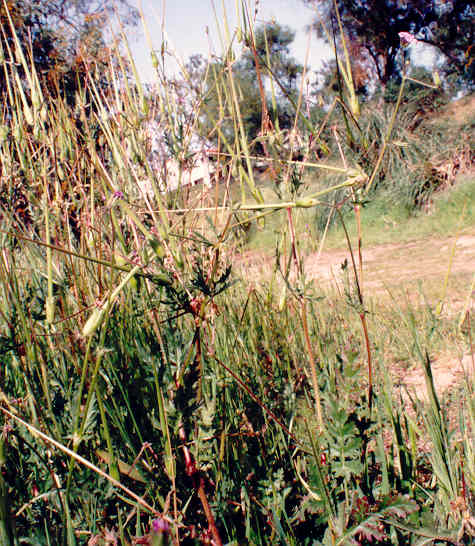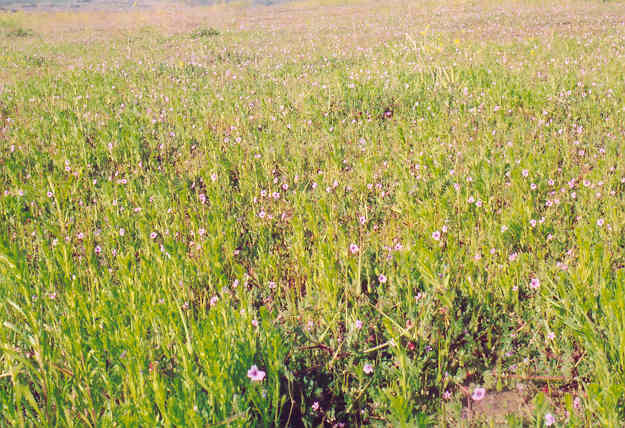
Erodium botrys (Cav.) Bertol.
 |
Erodium botrys (Cav.) Bertol.
Geraniaceae (Geranium Family)MediterraneanBroad Leaf FilareeLong-beaked Filaree |
March Photo
Plant Characteristics:
Annual herb at first forming a close rosette on ground, pinnately veined, simple
to pinnate, opposite, with 1 interpetiolar stipule on one side and 2 on the
other; stems semiprostrate to suberect, 1-9 dm. long, retrocurved-hirsute; lf.
blades ovate to oblong-ovate, 3-8 cm. long, shallowly to deeply lobed or
pinnatifid, setose-pilose on veins and margins, petiole = lf. blade; stipules
ovate; peduncles 2-20 cm. long; pedicels 1-4, glandular-pubescent; sepals 7-8
mm. long, 13-15 mm. in fruit, with prominent reddish mucro; petals ca. 15 mm.
long, lavender; style-column 9.5-12.5 cm. long; carpel-bodies 8-10 mm. long,
with short stiff spreading hairs, the apex subglabrous and its concavities
surrounded by 2 folds.
Habitat:
Grassy places at low elevs., almost throughout Calif., except on desert.
March-May.
Name:
Greek, erodios, a heron,
because of the long beak on the fr. (Munz,
Flora So. Calif. 490). Greek, botrys,
a cluster. (Jaeger 38). The species name may refer to the close rosette formed by the
early leaves.
General:
Not as common as E. cicutarium,
but found often throughout the study area.
Photographed on North Star Beach. John
Johnson has commented that whole hillsides will be covered with blooms in the
early morning but that by late afternoon only a few flowers will be visible.
This is because the flowers last only one day.
(my comments). Edible,
said to be less tasty than E. cicutarium. (Clarke 194).
About 650 species of temperate and subtropical regions. (Munz, Flora So. Calif.
490).
Text Ref:
Hickman, Ed. 672; Munz, Flora So.
Calif. 490; Robbins et al. 274; Roberts 26.
Photo Ref:
June 4 83 #21; Mar 2 85 #6; April 95 #; Mar 03 #21.
Identity: by R. De Ruff,
confirmed by F. Roberts.
First Found: June 1983.
Computer Ref: Plant Data 32.
Have plant specimen.
Last edit 12/20/04
 |
 |
.